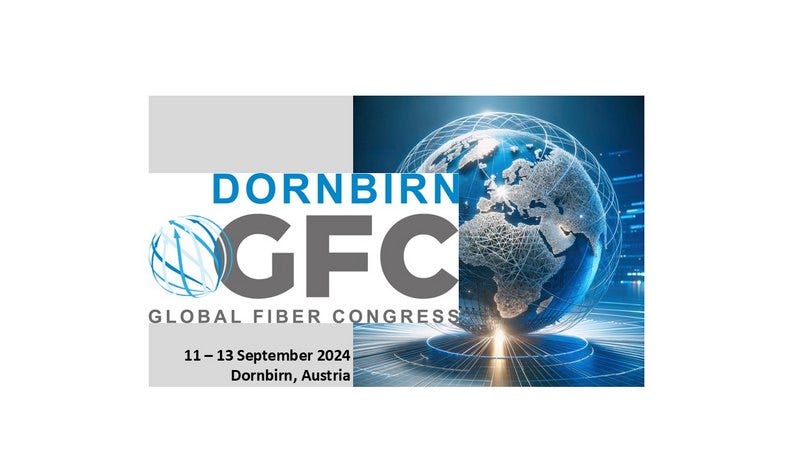Dornbirn GFC 2024: Sustainability and innovation drive the future of fibers
The 62nd Dornbirn Global Fibers Congress (GFC) concluded on September 13th, leaving a lasting impression on the global textile industry. The congress, held from September 11-13 in the picturesque Austrian town, brought together industry leaders, innovators, and researchers to explore the latest advancements in fiber and textile technology. The key takeaways from this year's event highlight the industry's unwavering commitment to sustainability, circular economy, and innovation.
Sustainability in focus
Sustainability was the central theme of the GFC 2024, with a focus on eco-friendly materials, circular economy practices, and responsible manufacturing.
Several sessions showcased new sustainable fibers, recycling technologies, and initiatives aimed at reducing waste and carbon emissions. The session, Sustainable Textile Innovations showcased groundbreaking advancements in sustainable fibers, including bio-based materials, recycled textiles, and innovative manufacturing processes. Experts emphasized the need for collaboration and transparency across the supply chain to achieve meaningful progress towards a sustainable textile industry. “The textile industry has a significant environmental footprint, but we're also at the forefront of developing solutions. This Congress showcased the amazing progress being made towards a more sustainable future," said Fritz Lackinger, Chairman of the Dornbirn GFC.
Circular economy, closing the loop
The circular economy concept gained significant traction at this year's GFC. The ‘Circular Economy in Textiles’ session highlighted the importance of designing products for longevity, promoting recycling and reuse, and minimizing waste. Case studies from leading brands showcased successful circular economy models, demonstrating the potential for economic and environmental benefits.
Fiber innovation and bio-materials
The Congress featured over 125 lectures and numerous case studies highlighting groundbreaking advancements in fiber technology. Speakers emphasized the importance of cross-industry collaboration to drive innovation and achieve a more sustainable future. The ‘Fiber Innovation and Bio-materials’ session showcased cutting-edge developments in fiber technology, including the use of bio-based and renewable materials. Speakers highlighted the potential for natural fibers, such as hemp and bamboo, to replace synthetic alternatives, reducing the industry's reliance on fossil fuels. The session also explored the latest advancements in bio-based polymers and 3D printing technologies for textiles.
Nonwovens and technical textiles
The session on Nonwovens and Technical Textiles highlighted the expanding role of these materials in various industries, including automotive, healthcare, and construction. Experts discussed the latest advancements in nonwoven technologies and the potential for these materials to replace traditional textiles in high-performance applications.

Clothing and sports
The Clothing and Sports session explored the latest trends in sportswear and performance apparel. Speakers highlighted the increasing demand for sustainable and functional textiles that enhance athletic performance and comfort. The session also showcased innovative textile technologies for sportswear, including smart fabrics and wearable electronics.
Energy solutions in focus
With rising energy costs and the urgent need to decarbonize, energy-efficient solutions were a central topics. Presentations covered renewable energy sources for textile production, innovative fiber production processes requiring less energy, and energy-saving textiles for buildings and apparel. "Energy efficiency is crucial, not just for reducing costs, but also for mitigating climate change. We're seeing exciting innovations in fiber production and textile applications that can contribute to a cleaner energy future," opined Sabine Herlitschka, CEO of Infineon Technologies Austria and keynote speaker at the event.
The GFC also gave a platform to young innovators who showcased their groundbreaking ideas. Their presentations highlighted cutting-edge research and technologies, demonstrated the next generation's commitment to sustainability and innovation in the fiber industry.
In fact, the 63rd Dornbirn GFC reaffirmed its position as a pivotal event for the fiber and textile industries. It served as a platform for exchanging ideas, showcasing innovation, and fostering collaboration, all in the pursuit of a more sustainable and energy-efficient future. The focus on sustainability, energy solutions, and young innovators underscores the industry's commitment to addressing its environmental impact and embracing change.
